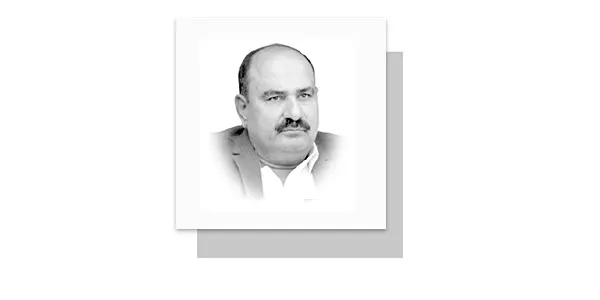PUNJAB, the most populous province of Pakistan, has often been at the forefront of educational reforms.
From infrastructure improvements to merit-based hiring of educators, many commendable steps have been taken over the years.
Now, as Punjab stands at another turning point under the dynamic leadership of Chief Minister Maryam Nawaz Sharif, it is time to take a bold, transformative leap: the introduction of adult education classes in all government schools after regular hours.
Despite Pakistan’s constitutional commitment to providing free and compulsory education to all children aged 5 to 16 (Article 25-A), millions remain out of school.
According to Pakistan Education Statistics 2021-22, more than 22.8 million children are still out of school, with Punjab alone contributing approximately 8 million to that number.
Additionally, the adult illiteracy rate in Punjab stands at nearly 40%, with a significant majority being women.
Illiteracy is not just an individual limitation , it is a social burden.
Illiterate citizens are more vulnerable to exploitation, less likely to access healthcare and unable to contribute productively to the economy.
If we are to uplift our province and nation, education must be treated as the foundation of all progress.
It is proposed that all government schools across Punjab be mandated to initiate adult education classes after normal school hours.
These classes would serve adults, especially parents of students, labourers, housewives and underprivileged youth who never had the chance to complete their education.
These sessions should focus on functional literacy such as reading, writing, arithmetic, health education and civic awareness.
To make this initiative sustainable and attractive, teachers who volunteer for these classes should be given a special monthly allowance as recognition of their contribution to national service.
Students of higher classes, especially matric and intermediate, who assist in adult education should also be offered certificates, scholarships or academic credits as incentives.
Partnering with local NGOs and community leaders will further strengthen grassroots outreach.
Parallel to adult education, a province-wide awareness campaign should be launched to emphasize that school education is mandatory for every child above five years of age.
Community mobilizers, media platforms, mosques and lady health workers should be engaged to spread the message: “No Child Without School.
” Incentives like midday meals, free books, uniforms and transport can help poor families overcome the barriers of poverty.
Strict monitoring systems must ensure that children are not being sent to work instead of school.
A UNESCO study shows that each additional year of schooling increases individual income by up to 10 percent.
Literate mothers are more likely to educate their children and follow better health practices.
According to World Bank data, literacy directly correlates with GDP growth, gender equality and lower crime rates.
CM Maryam Nawaz has already shown her resolve for education by launching initiatives such as smart classrooms and school rehabilitation.
Her commitment to the welfare of the common people gives hope that she will also rise to this occasion with a historic decision that could change the educational landscape of Punjab forever.
By opening school doors to adults in the evening and ensuring every child over five is in school, Punjab can truly become a model province in literacy and human development.
This is not just an administrative decision , it is a revolution waiting to happen.
Let’s light the lamp of education in every home.
Because a literate Punjab is a prosperous Pakistan.
—The writer is former Regional Executive Inclusive Development at NBP, Mirpur AK. (aahmadofpaswal@yahoo.com)


















